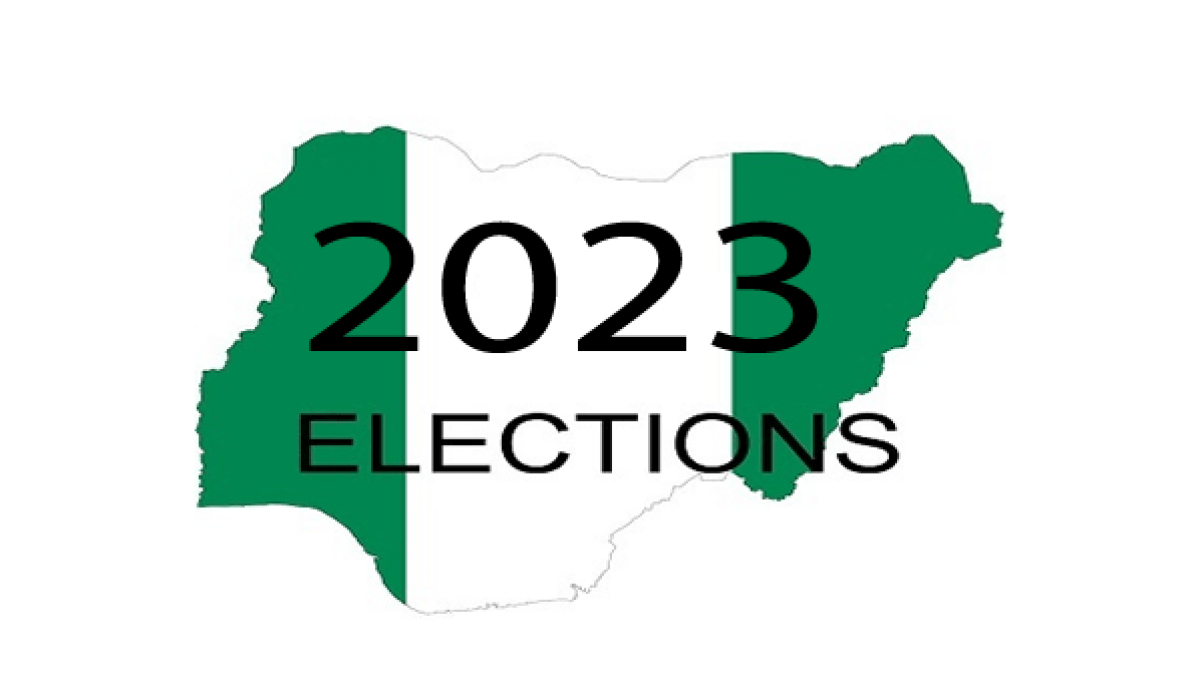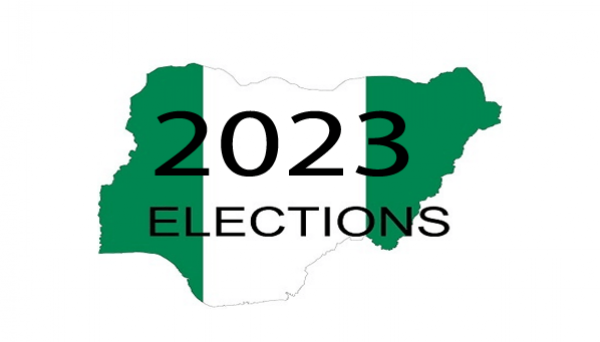As Nigerians set to go to the polls on Saturday, 18 February 2023 to vote for their new president, the atmosphere nationwide is tense and filled with so many debates, arguments, thrills, high dramas, and a million expectations. The electioneering period has often, as in the past divided friends and families and countrymen along the lines of tribe, tongue, religion, and ideology in general. The forthcoming election wouldn’t be any different as the tone has been set.
Read more about Politics
From popular heavyweights to newcomers, Nigerians have identified 23 aspirants who have declared their interest to take over from Muhammadu Buhari come 2023. Under the People’s Democratic Party (PDP) we have Atiku Abubakar, Anyim Pius Anyim, Mohammed Hayatu-Deen, Bala Mohammed, Dele Momodu, Peter Obi, Sam Ohuabunwa, Doyin Okupe, Bukola Saraki, while in the All Progressive Congress (APC) we have Ibrahim Bello Dauda, Orji Uzor Kalu, Rochas Okorocha, Wisdom Osagiede Ogbeowemwenkon Osemwende, Ahmad Sani Yerima, Asiwaju Bola Tinubu, and David Umahi. Others include Professor Kingsley Moghalu, Chukwuka Monye, and Okunnu-Kadijah Lamidi. In the coming weeks, more politicians will declare their intentions. Many likely hopefuls have stated that they are still consulting and testing the waters.
The above-mentioned names are raising the dust and drawing in the clouds over the Nigerian political landscape. First, within the Nigerian political arena, the question of zoning has remained a critical issue among the two leading parties, PDP and APC. In the PDP, her case is quite complicated and troubling. Having lost the presidency to APC in 2015, PDP has found itself ever since attempting to wrestle power back from the APC, which she did unsuccessfully in 2019. The current situation around zoning within the party is anchored on the fact that the party presidential ticket should be zoned to the north in the person of Alhaji Atiku Abubakar who has unsuccessfully tried to clinch the presidential seat since 1999. According to the pro-north group, they argue that Atiku Abubakar has the national political structure and the financial wherewithal and capacity to defeat anybody that would be presented by the APC, be it Tinubu or Osibanjo. Conversely, the southern members of the party have argued that the North has ruled the country for the past eight years in the person of Buhari and believe that it is the turn of the south to produce the next president. Still, within the party, some members have stated that the presidency ought to be zoned to the southeastern part of the country which has not produced a president since 1966. This sentiment is not just within the party but also has been found outside the party. To this end, the southeast has produced seven presidential hopefuls: Peter Obi, Ayim Pius Ayim, Rochas Okorocha, Dave Umahi, Sam Ohuabunwa, Orji Uzor Kalu, Professor Kingsley Moghalu, and Chukwuka Monye.
On the other hand, the APC is not spared from the troubled waters of power tussle and power-sharing. The party is currently faced with an internal crisis over multiple issues ranging from presidential zoning to party chairmanship and other critical positions. The party has unsuccessfully held its party convention having suffered a series of postponements due to the controversy over the chairmanship of the party between Yobe Governor, Mai Mala Buni and Gov. Senator Abdullahi Adamu, the president’s preferred choice. Precisely, the stakeholders are pushing against the decision of President Muhammadu Buhari and governors elected on the party’s platform to impose former governor of Nasarawa State, Senator Abdullahi Adamu, and former Senate President Ken Nnamani as chairman and deputy chairman south respectively.
Sign up for the Connect Nigeria daily newsletter
Aside from this, another crisis that has emerged within the party is the possible successor of the president with several big names being thrown up. On one hand, Tinubu has fronted himself as the most efficient successor and has enjoyed the patronage of certain party stalwarts. However, there have been grassroots and underground mobilization for Vice President Yemi Osibanjo by another set of party stakeholders, machinations engineered by power brokers from the north. Reliable sources have revealed that Osibanjo, who at one time served as Attorney-General and Commissioner for Justice in the cabinet of Lagos State Governor Bola Tinubu, is more trustworthy compared to Tinubu whose political clout cannot be bullied and shoved with a wave of the hand. There is an apparent fear of Tinubu among northern stakeholders who would rather field a malleable candidate that can kowtow in their poh-hoe. Others are rather considering former President Goodluck Ebele Jonathan and CBN Governor Godwin Emefiele, both from the south-south area of the country. This move has been read by many as a ploy by the north to continue to perpetuate themselves in power because on one hand, Goodluck Jonathan is liable to serve for one term, after which power is returned to the north, and on the other Emefiele, a man without structures would be a perfect front for a northern-controlled government.
Nevertheless, in all these political altercations ongoing in the two major parties, the electorates have also made their statements too. While others share sentiments that are religious, tribal, and politically instigated, many Nigerians are in dire need of fresh air. For some, based on antecedents, the ex-governor of Anambra state Peter Obi, who declared his intention to run for president on Thursday under the platform of the PDP is the best man for the job, others have stated something about a total change from the status quo where power has revolved around PDP and APC since 1999, hence presenting Professor Kingsley Moghalu, a technocrat and a former deputy governor If Central Bank, as another good choice. However, in a country where emotions abound more than reasoning and evil triumph over good, do Peter Obi or Kingsley Moghalu stand the chance? Time will tell.
While Nigerians get caught up in a political whirlwind, they must be aware of the real issues on the ground: Nigeria in recent times has been divided ethnically and religiously more than ever before under the APC-led government; the economy has been hit by hyperinflation; the scarcity and increase in fuel price have grounded many industries and businesses; insecurity woes have heightened and Nigeria has much more woes to deal with. Nigeria is presently sitting on a keg of gunpowder and can only be salvaged by voting a unifier, who will mend the rifts, and heal the nation, and a technocrat who can bring out the nation from its economic depression and insecurity woes.
Featured image source: Daily Post Nigeria
Got a suggestion? Contact us: [email protected]


